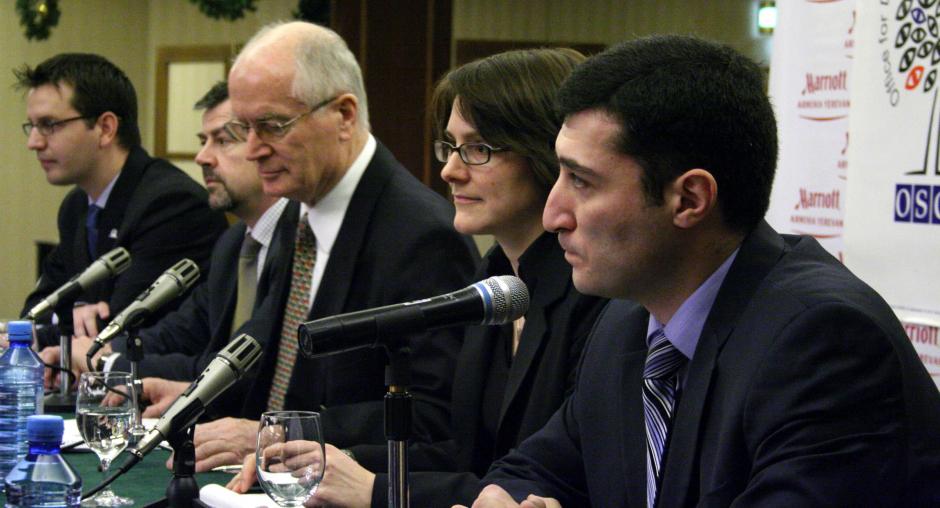Presidential Election, 19 February 2008

Type:
Country:
Mission at a glance
- Head of Mission: Ambassador Geert-Hinrich Ahrens
- 11 core staff from 9 participating States
- 28 long-term observers deployed throughout the country
- 250 short-term observers requested from participating States
Mission schedule
- 10 Jan: Mission opens
- 14 Jan: Arrival of long-term observers
- 15 Feb: Arrival of short-term observers
- 19 Feb: Election day
- 20 Feb: Press conference
Following an invitation from Ministry of Foreign Affairs of the Republic of Armenia, the OSCE/ODIHR has deployed an Election Observation Mission (EOM) to observe the presidential election scheduled for 19 February 2008.
The president will be directly elected for a five-year term by an electorate of some 2.3 million voters. In order to be elected, a candidate must win over 50 per cent of the votes cast for all candidates in the first round; otherwise the two leading candidates take part in a second round two weeks later, in which the winner is decided by a simple majority. The incumbent president, Robert Kocharian, will not be able to run again as the constitution limits eligibility to two consecutive terms.
The OSCE/ODIHR EOM and the OSCE Office in Yerevan, headed by Ambassador Sergey Kapinos, operate independently under separate mandates.
Long-term observation
The OSCE/ODIHR conducted a Needs Assessment Mission (NAM) on 4 and 5 December 2007 in order to assess the conditions and preparations for the election and to advise on the level of OSCE/ODIHR involvement in the forthcoming election. The NAM recommended that a standard election observation mission be deployed.
The EOM, headed by Ambassador Geert-Hinrich Ahrens, consists of 11 core staff based in Yerevan, drawn from 9 OSCE participating States. In addition, 28 long-term observers will be deployed throughout the country on 15 January.
The EOM will assess the presidential election for its compliance with principles for democratic electoral processes, including commitments agreed to by all OSCE participating States, as well as with national legislation. Observers will closely monitor campaign activities, the work of the election administration and relevant governmental bodies, election-related legislation and its implementation, the media environment, and the resolution of election-related disputes.
Election day
The OSCE/ODIHR will request 250 short-term observers to be deployed immediately prior to the 19 February election. The short-term observers will be deployed throughout the country in multinational teams of two to monitor the opening of polling stations, the voting, the counting of ballots, and the tabulation of results. Contingent on the possibility of a second round, short-term observers may be requested to monitor the run-off election.
The day after the election, the Election Observation Mission will issue a statement of preliminary findings and conclusions. A final report on the observation of the entire electoral process will be issued approximately eight weeks after the end of the observation mission.
Previous elections
The OSCE/ODIHR observed elections in the Republic of Armenia since 1996, most recently the parliamentary elections of 12 May 2007.
